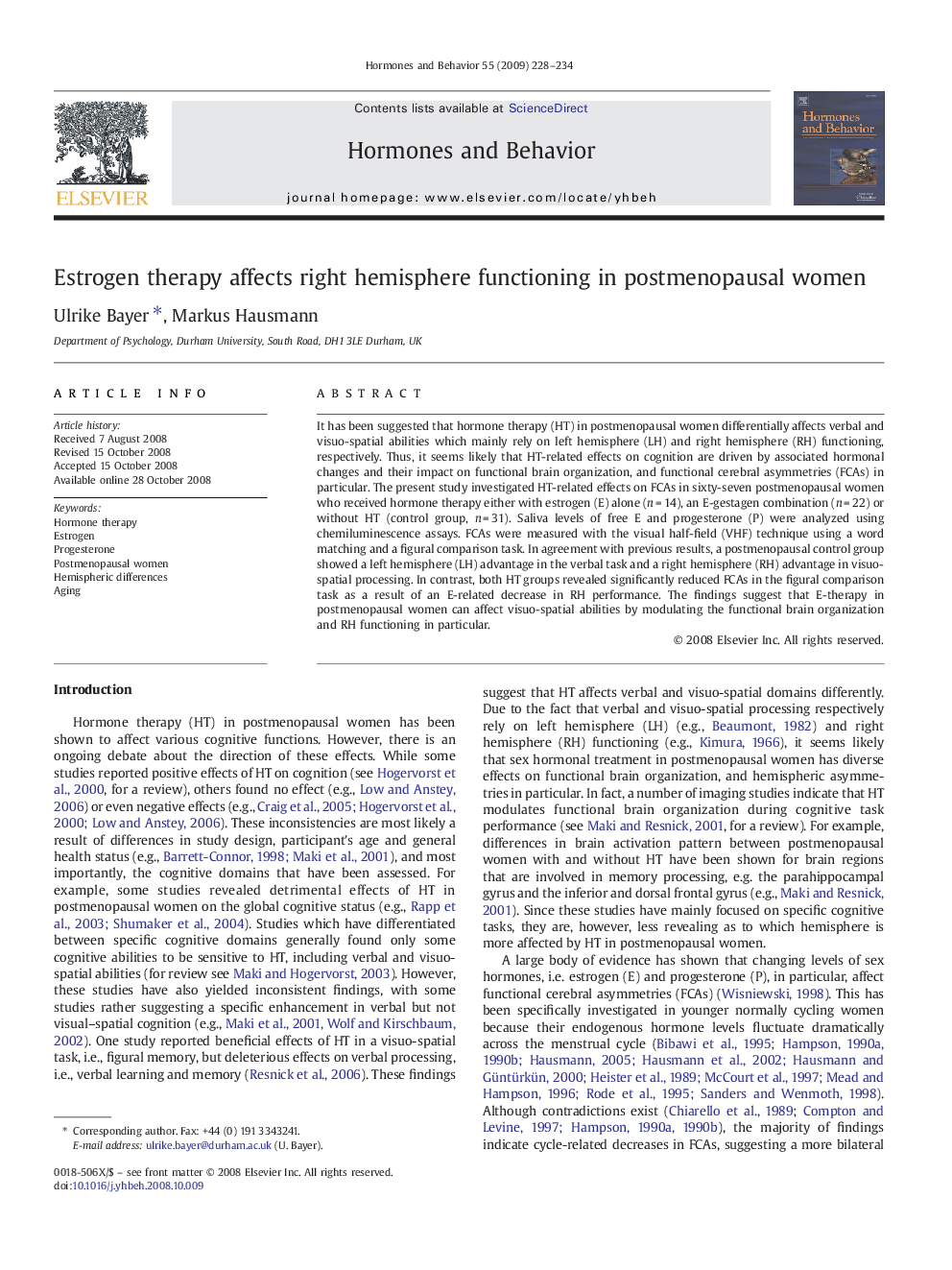| Article ID | Journal | Published Year | Pages | File Type |
|---|---|---|---|---|
| 323261 | Hormones and Behavior | 2009 | 7 Pages |
It has been suggested that hormone therapy (HT) in postmenopausal women differentially affects verbal and visuo-spatial abilities which mainly rely on left hemisphere (LH) and right hemisphere (RH) functioning, respectively. Thus, it seems likely that HT-related effects on cognition are driven by associated hormonal changes and their impact on functional brain organization, and functional cerebral asymmetries (FCAs) in particular. The present study investigated HT-related effects on FCAs in sixty-seven postmenopausal women who received hormone therapy either with estrogen (E) alone (n = 14), an E-gestagen combination (n = 22) or without HT (control group, n = 31). Saliva levels of free E and progesterone (P) were analyzed using chemiluminescence assays. FCAs were measured with the visual half-field (VHF) technique using a word matching and a figural comparison task. In agreement with previous results, a postmenopausal control group showed a left hemisphere (LH) advantage in the verbal task and a right hemisphere (RH) advantage in visuo-spatial processing. In contrast, both HT groups revealed significantly reduced FCAs in the figural comparison task as a result of an E-related decrease in RH performance. The findings suggest that E-therapy in postmenopausal women can affect visuo-spatial abilities by modulating the functional brain organization and RH functioning in particular.
